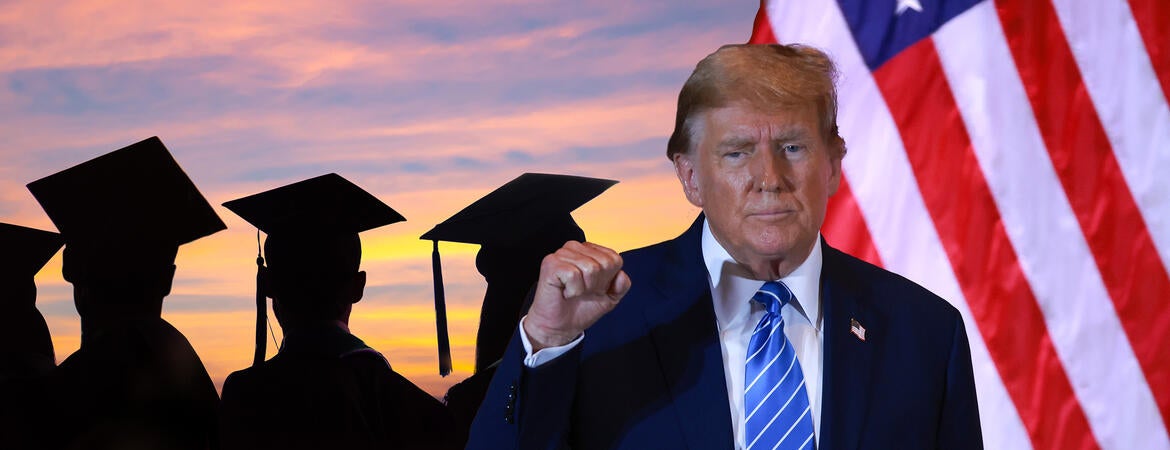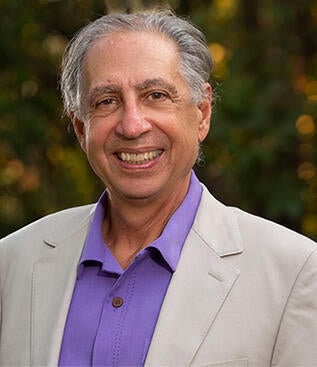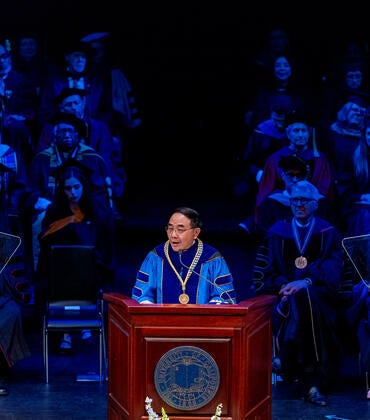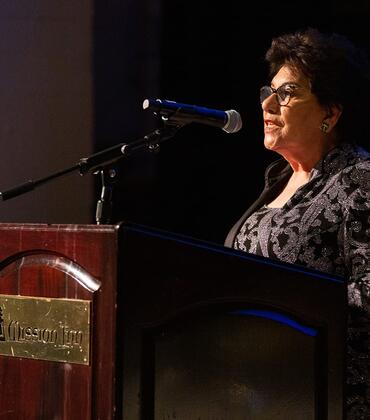
In a recent column in The Chronicle of Higher Education, which was subsequently referenced in a New York Times column, UCR Professor Steve Brint considered the ramifications for higher education of a second Donald Trump presidency. Brint is a distinguished professor of sociology and public policy, and author of the book “Two Cheers for Higher Education.” Here, Brint summarizes and expounds upon some of his points.
Gov. Ron DeSantis has targeted higher education institutions in Florida, including their DEI initiatives, and other states have followed suit. Higher education issues including DEI initiatives, gender and inclusivity instruction, and critical race theory are touchstones for Republicans. Will a Trump presidency present more challenges to higher education than any other Republican administration?
Republicans have identified backlash to practices that universities use to create inclusive environments as a way to mobilize support. Many of those close to Trump intend to use this backlash to challenge the autonomy of higher education institutions and to try to redirect universities along the lines they favor. Trump will need to have both chambers of Congress in Republican hands to make good on his intentions.
On Dec. 5, three university presidents testified before Congress on antisemitism, with plenty of criticism and fallout to follow. What does this tell us about higher education’s posture in the face of scrutiny? What should the testifying Dec. 5 presidents have done differently?
Higher education leaders cannot afford to hide behind legalese in the face of determined political opponents. They need to stand up for the accomplishments of their institutions and for the values of their institutions. The three presidents who testified on Dec. 5 should have realized that they were involved in political theater. They should have turned the tables on their inquisitors by showing the good their universities do and they should have given concrete evidence of what they were doing to combat those anti-Semitic incidents on campus that are not protected by free speech.
What is “ideological capture” in the vernacular of would-be conservative higher education reformers, and why is it in their sights?
For conservatives, “ideological capture” means that some departments and disciplines have been populated by people who are promoting power-centered theories that are not open to criticism. Many conservatives believe that professors in these departments and disciplines are indoctrinating students with views that are not only empirically wrong but also harmfully divisive.
How might accrediting agencies play a role in a Trump administration?
Many Republicans, including Trump, want to change the criteria used by accrediting agencies in their reaccreditation processes. Republicans don’t entirely agree on what the new criteria should be but most want measures of labor market impact, proof of low levels of long-term student indebtedness, and evidence of intellectual diversity in classrooms.
What are the most likely couple of casualties in a Trump administration?
I think a second Trump Administration would try to condition financial aid and/or research funding on evidence of conformity to the recent Supreme Court decision on affirmative action and evidence that the campus was promoting a climate of discourse in which a wide variety of views on social and political issues were encouraged.
Among the topics in the sights of conservative reformers, which are least likely to succeed?
Donald Trump has talked about opening a national online university that would provide credit-bearing course work free of charge. This is a non-starter because of its prohibitive cost and because of how closely it resembles his Trump University, which closed its doors in 2010 and had to pay $25 million to students it defrauded. I also think accreditation reform is a heavy lift because it would require amendment of the Higher Education Act of 1965, which few will want to undertake.
In your opinion, which targets of GOP reformers are most on point, if any?
I personally think that the campus climate for discourse could be more open. Too many people silence themselves for fear of being ostracized by campus progressives. That’s not healthy on a college campus. But universities need to solve this problem internally. The mobilization of state power for this purpose is a huge threat to institutional autonomy. I'm completely opposed to what is happening in states like Florida and Indiana where the state is intruding in counter-productive ways.
What can higher education learn from the tactics of its conservative detractors?
Universities are under attack. Senior administrators are usually expert managers but we now need people in those roles who have the political and performance skills to meet the moment. Presidents should begin to extol again the broad civic mission of universities. That broad vision includes research that provides far-seeing insight; studies that help to solve a wide range of community problems; the development of new technologies that bring jobs and wealth; lectures and performances that bring cultural enrichment to local communities; and the cultivation of future leaders.
We also need to pay attention to problems that have developed over time. Even though their remedies are misguided, conservatives may have done universities a favor by pointing out some of those problems. They include an overly restrictive climate for discourse and DEI offices that are sometimes overzealous in their protectiveness and in their prosecution of dissenters.
Another problem is less frequently mentioned by conservatives but equally important to address: a sizable proportion of students are not well prepared for college, do not have study skills, and do not read for their classes.




